 (New York, NY) — Today, the #HALTsolitary Campaign released the following statement on new evidence about Layleen Polanco’s tragic death and Elizabeth Warren’s call for an end to solitary confinement:
(New York, NY) — Today, the #HALTsolitary Campaign released the following statement on new evidence about Layleen Polanco’s tragic death and Elizabeth Warren’s call for an end to solitary confinement:
“The #HALTsolitary Campaign continues to mourn for Layeen Polanco and commends Senator Elizabeth Warren for drawing attention to her unconscionable and tragic death and calling for an end to the use of solitary confinement. Layleen’s was a life cut short, a life that mattered, a life taken by criminalization of sex work, the war on drugs, pre-trial jailing, and solitary confinement. This week’s revelations from Layleen’s autopsy that she died of an epileptic seizure in solitary at Rikers Island confirmed how completely preventable this devastating tragedy was. There are no words to convey how heartbroken we are for those who knew and loved Layleen, and how outraged that all of us have to watch our criminal legal system take another life, seemingly with impunity. Her passing follows the deaths of many others who have taken their last breaths in solitary confinement and must serve as a wake-up call to all lawmakers in New York City, New York State and across the country to both end solitary confinement and end the entire racist punishment paradigm, in which trans and gender non-conforming people are particularly targeted for criminalization and state violence.
Governor Cuomo, Senate Majority Leader Stewart-Cousins, and Assembly Speaker Heastie need to heed this call and enact the HALT Solitary Confinement Act on the very next day of the legislative session. A majority of state Senators and Assembly Members support HALT and it is time for the bill to be brought to a vote, passed, and signed into law. In the meantime, there is no excuse for Mayor de Blasio not to end this torture in his jails immediately.”
BACKGROUND:
Senator Warren’s call for an end to solitary confinement (“solitary confinement is cruel and inhumane. We must end this practice”) is part of a growing chorus of voices across the country to stop this torture, including from other presidential candidates. Corey Booker has said: “[s]olitary confinement is torture. It is an archaic, damaging, and inefficient practice that has been proven to have irreversible effects. … [T]his practice is wholly unjust and leaves the incarcerated worse off.” John Hickenlooper: “We also need to end solitary confinement, which is cruel and unusual punishment, and makes it next to impossible for [people] to reenter society when their prison term ends.” Beto O’Rourke: “let’s absolutely end solitary confinement.” Pete Buttigieg will “[r]educe use of solitary confinement, including abolishing its prolonged use” (which is defined internationally as beyond 15 days). Joe Biden also calls for “ending the practice of solitary confinement, with very limited exceptions such as protecting the life of an imprisoned person.”
A groundbreaking report released by advocacy group Black & Pink in October 2015, Coming Out of the Concrete Closet, based on a national survey of LGBTQ people in prison found that fully 85% had spent time in solitary confinement, with Black, Latinx, mixed‐race, and Native American/American Indian as well as people with mental illness having even higher rates of placement in solitary.
34 New York State Senators from Long Island to Upstate New York are officially co-sponsoring the HALT Solitary Confinement Act – a clear majority – and additional Senators have committed to vote for the bill, as well. 79 New York State Assembly Members also officially co-sponsor HALT – another clear majority – and the bill passed in that house in 2018.
Thousands of people remain in solitary confinement in New York’s prisons and jails each day, and tens of thousands each year experience this torture: 22 to 24 hours a day in a cell without any meaningful human contact or programs. They are disproportionately Black and Latinx people, young people, gender non-conforming people, and people with mental illness.
People continue to spend months, years, and decades in solitary (including 30+ years) in NY. The sensory deprivation, lack of normal interaction, and extreme idleness of solitary can lead to intense suffering and severe psychological, physical, and even neurological damage. More than 30% of all prison suicides in New York take place in solitary.
The entire United Nations, including the US, passed rules prohibiting solitary beyond 15 days for any person, because it otherwise would amount to torture. Colorado has implemented a 15-day limit in its prisons and reduced the number of people in solitary from 1,500 to 18. The HALT Solitary Confinement Act (S1623-Sepulveda / A2500-Aubry) similarly includes a 15-day limit on solitary, and would create more humane and effective alternatives. A summary of the bill can be found here. The bill passed the State Assembly in 2018 by a vote of 99 to 45.
The New York City Council passed a resolution in support of HALT, the second such statement by a local government (in May 2019, the Tompkins County Legislature also passed a resolution supporting HALT). The Progressive Caucus and the Women’s Caucus of the NYC Council have called for a complete end to solitary confinement.
States that have reduced the use of solitary have seen a positive impact on safety for both incarcerated people and staff. Community members are calling for New York State Legislators and Governor Cuomo to pass HALT on the very next day the legislature is in session, and calling on New York City to act before then to end solitary completely in the City jails.
Contact: Scott Paltrowitz at spaltrowitz@hotmail.com
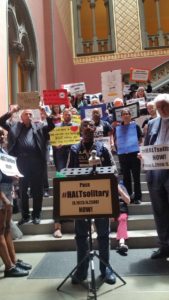 By Victoria Law.
By Victoria Law. 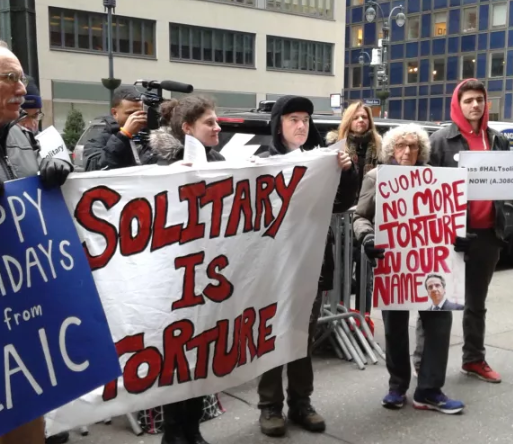 (Westchester, NY) – Today, April 22, a new group of 15 rabbis and other Jewish community leaders released an
(Westchester, NY) – Today, April 22, a new group of 15 rabbis and other Jewish community leaders released an 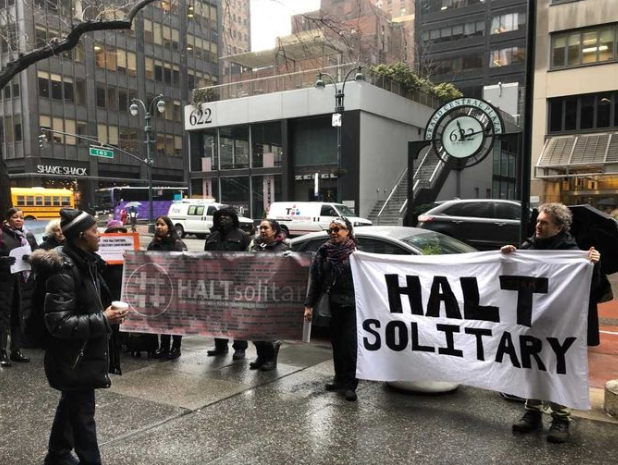 By Denis Slattery.
By Denis Slattery. 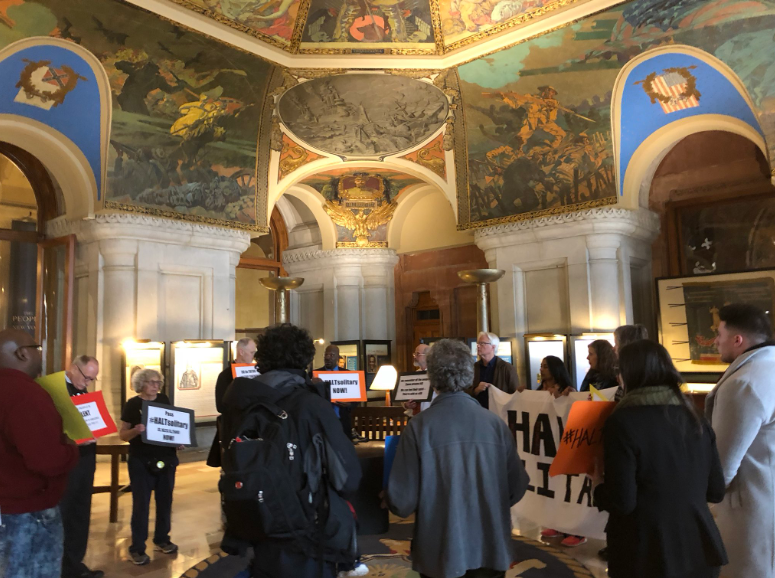 (New York, NY) – Today, March 15, the #HALTsolitary Campaign, a coalition of survivors of solitary confinement, family members of people in solitary, mental health and legal experts, people of faith, and others, released the following statement in support of the Legislature’s rejection of Governor Cuomo’s proposal on solitary confinement in their one-house budget resolutions:
(New York, NY) – Today, March 15, the #HALTsolitary Campaign, a coalition of survivors of solitary confinement, family members of people in solitary, mental health and legal experts, people of faith, and others, released the following statement in support of the Legislature’s rejection of Governor Cuomo’s proposal on solitary confinement in their one-house budget resolutions: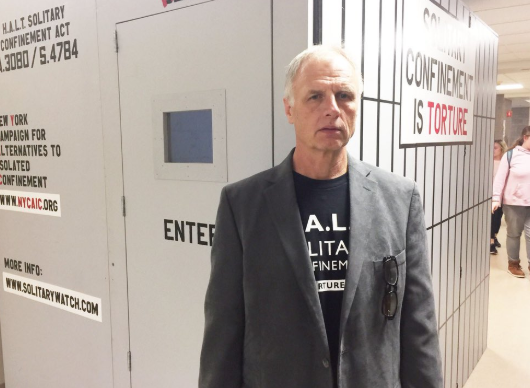 By Matt Hunter.
By Matt Hunter. 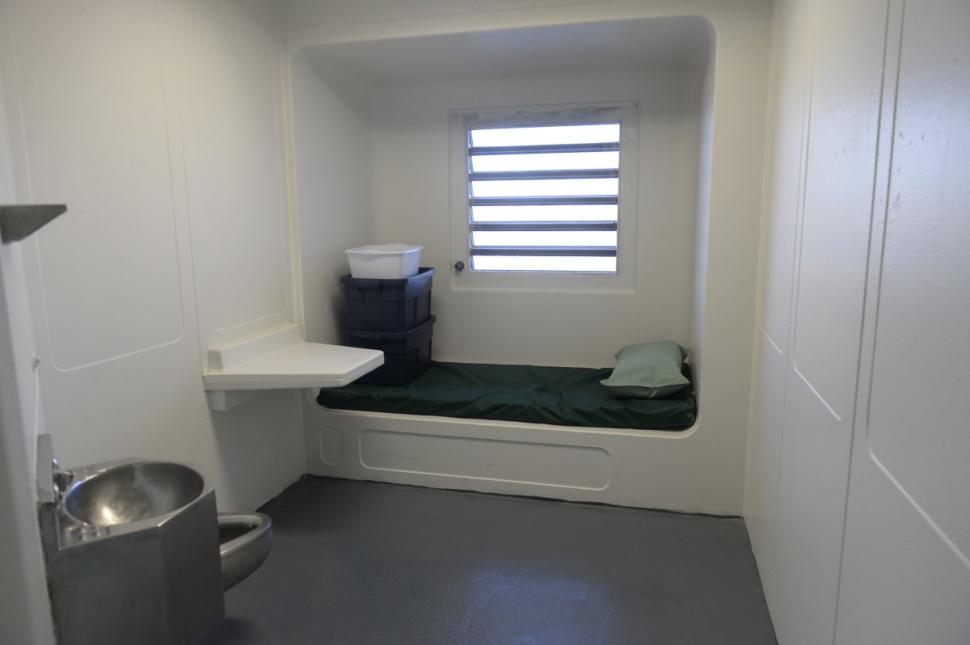 New York Must Pass #HALTsolitary Now!
New York Must Pass #HALTsolitary Now! 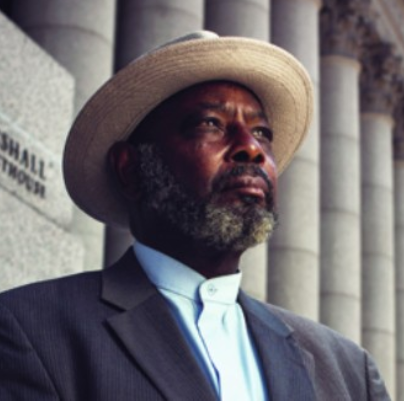 We at the Campaign For Alternatives to Isolated Confinement wish to express our deepest condolences to the family of Mujahid Farid. Our prayers go out to them in their time of loss.
We at the Campaign For Alternatives to Isolated Confinement wish to express our deepest condolences to the family of Mujahid Farid. Our prayers go out to them in their time of loss.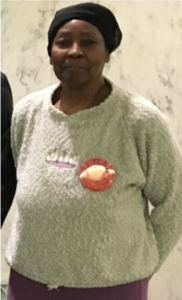 New York Campaign for Alternatives to Isolated Confinement (CAIC) would like to honor and remember one of our dear members Carole Willis, who recently passed away at the age of 79. A lifelong New Yorker, Carole was a wonderful, caring, and giving person who had a beautiful heart and soul. Carole was actively involved with CAIC and the Correctional Association of NY for the last several years, and her son Nicholas Zimmerman spent over a decade in solitary confinement.
New York Campaign for Alternatives to Isolated Confinement (CAIC) would like to honor and remember one of our dear members Carole Willis, who recently passed away at the age of 79. A lifelong New Yorker, Carole was a wonderful, caring, and giving person who had a beautiful heart and soul. Carole was actively involved with CAIC and the Correctional Association of NY for the last several years, and her son Nicholas Zimmerman spent over a decade in solitary confinement.
Follow the #HALTsolitary Campaign